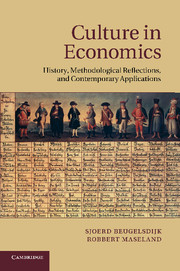8 - International business
Published online by Cambridge University Press: 04 February 2011
Summary
Introduction
After looking at entrepreneurial culture and trust, we devote this chapter to the relationship between culture, cultural differences, and the international organization and production of economic activity. As we explain in more detail below, the field of international business (IB) is at least partly defined in terms of its attempt to understand the role of culture. Since the 1970s, IB scholars have expended a great deal of effort to increase our understanding of the role of culture in explaining the organization of international production. This concerns not only patterns of foreign direct investment (FDI) and trade but also the way culture and cultural differences affect the economic organization of these international activities (entry-mode strategies). Given international economists' recent interest in multinational heterogeneity (e.g. Melitz 2003; Bernard et al. 2003, 2007; Yeaple 2005, 2008) and in the role of culture in economic behavior (see previous chapters), we take a closer look at the field of IB to see what we can learn from this literature.
This chapter is structured as follows. In order to make clear why studies in international business are relevant and important to discuss in the context of this book, we first define the field of international business. We describe the type of research questions IB scholars typically try to answer and show that Hofstede's culture framework has shaped IB research in many ways. Specifically, using Hofstede's culture dimensions, Kogut and Singh (1988) introduced a measure of cultural distance. This measure is used extensively in IB.
- Type
- Chapter
- Information
- Culture in EconomicsHistory, Methodological Reflections and Contemporary Applications, pp. 226 - 253Publisher: Cambridge University PressPrint publication year: 2010



